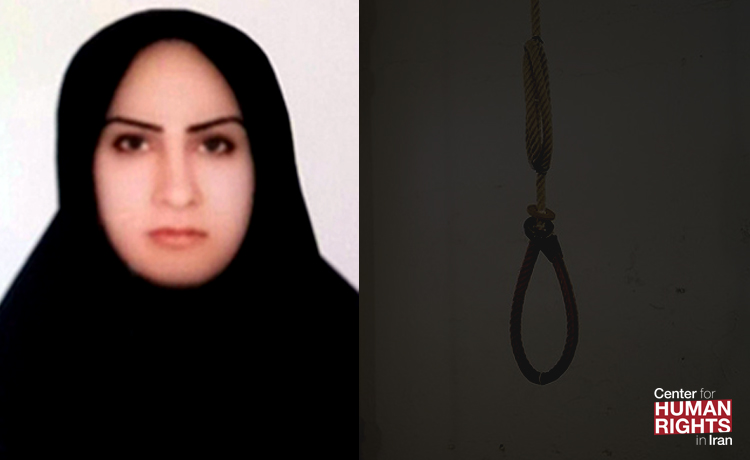Young Woman Put to Death in Iran for Crime Committed as Juvenileایران اعدام افرادی که زیر سن قانونی مرتکب جرم میشود را متوقف کند و به محروم کردن متهمان از دادرسی عادلانه پایان دهد
 |
| Zeinab Sekaanvand is Fifth Known Juvenile Offender Executed in Past Year |
OCTOBER
2, 2018
October 2, 2018 – The Center for Human Rights in Iran
(CHRI) condemns the execution of Zeinab Sekaanvand Lankarani who was charged with
murder as a juvenile and hanged in violation of all international laws and
standards, and calls on the Iranian judiciary to immediately halt the
executions of all juvenile offenders.
“Iran claims it doesn’t execute juveniles but it isn’t
fooling anyone by arresting minors and waiting until they’re adults to hang
them,” said CHRI’s Executive Director Hadi Ghaemi.
“Zeinab Sekaanvand was married off at 15, jailed at 17
and later executed for the charge of murder despite evidence that she had been
forced to confess to the crime under torture,” Ghaemi added.
After her arrest in March 2012 for allegedly murdering
her husband, who she said had subjected her to repeated physical and verbal
abuse, Sekevaand was held in a police station in Oroumiyeh for 20 days and
subjected to torture by police officers “through beatings all over her
body,” Amnesty Internationalreported.
Iran is one of the few countries in the world where
juvenile offenders continue to be executed. Sekaanvand was hanged in
Iran’s Orumieh Central Prison, West Azerbaijan province, on October 2, 2018.
Sekevaand is the fifth known juvenile offender to be
executed in Iran since January. She had one daughter and was 24-years-old at
the time of her death.
According to the advanced unedited version of the Report of the Special Rapporteur on the situation of human rights
in the Islamic Republic of Iran, submitted to the UN General
Assembly in October, the following juvenile offenders were also hanged in the
first six months of 2018: Amir Hussein Pourjafar, Ali Kazemi Mahboubeh Mofidi
and Abolfazl Chezani Sharahi.
The UN also reported that at least 85 juvenile offenders were on death row in Iran as
of June 2018.
Request for Appeal Denied
Sekaanvand’s lawyer requested an appeal based on
questions regarding the evidence and Sekaanvand’s statements that she had been
forced to confess, but the judge would not grant the appeal.
“The hard work we did in these past few years and our
requests for judicial reviews by the Supreme Court all came to nothing,” said
attorney Rita Toutounchia.
“I presented my arguments to the judge about why I
believed my client had not committed murder,” added Toutounchia. “But
unfortunately they were not taken into consideration and the judge condemned
her to death.”
Sekaanvand’s lawyer had also asked the husband’s family
to forego the execution, a practice allowed under Iranian law, but the family
refused. The UN has called on Iran to stop allowing juveniles to be executed
under the Iranian law of “retaliation in kind” (qisas)
for the crime of murder upon the request of the next of kin of the victim.
According to the International Covenant on Civil and Political Rights (ICCPR)
and Convention on the Rights of the Child, it is illegal to
execute someone for crimes committed under the age of eighteen. Iran is a party
to both treaties.
“We may never know who killed Sekevaand’s husband but we
do know that this young woman was held responsible for the crime while she was
a minor and hanged without a fair chance to defend herself,” said Ghaemi.
No comments:
Post a Comment